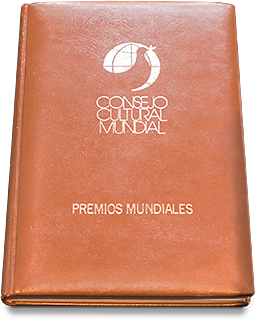
 Date: 11 November 2008
Date: 11 November 2008
Place of Ceremony: Richardson Auditorium, Alexander Hall
Host Institution: Princeton University
Host Country: New Jersey, USA
(Princeton University, November 11, 2008) The World Cultural Council celebrated its 25th anniversary with the host of Princeton University. The Award Ceremony took place on Tuesday, November 11, at 16.30 hrs in Richardson Auditorium, Alexander Hall, Princeton University, in Princeton, New Jersey.
Princeton President Shirley M. Tilghman delivered the 2008 Albert Einstein World Award of Science to Prof. Ada Yonath, Professor of Structural Biology and Director of the Helen & Milton A. Kimmelman Center for Biomolecular Structure and Assembly, at the Weizmann Institute for Science in Israel.
It is a prize that recognizes Prof Yonath’s pioneering contributions to protein biosynthesis in the field of ribosomal crystallography and her introduction of innovative techniques in cryo-bio crystallography. These innovative techniques are now used routinely in many laboratories and many scientists have based their research on her discoveries.
Her work has revolutionized the field of structural biology and has given it wide-ranging applications, particularly in the development and design of new antibiotics.
Professor Edmond H. Fischer, President of the World Cultural Council delivered the 2008 José Vasconcelos World Award of Education to Prof. William G. Bowen, President Emeritus of Princeton University and President Emeritus of the Andrew W. Mellon Foundation.
This recognition is awarded to Prof. Bowen for his lifetime’s work creating educational opportunities for those historically denied them, either because of their color, gender or socioeconomic circumstances, ensuring that American colleges incorporate the concept of equal opportunity into their selection criteria. It acknowledges his relentless efforts to achieve, as Robert Venturi put it, “the difficult unity of inclusion rather than the easy unity of exclusion” in the field of education.
Prof. Bowen has also greatly contributed to American higher education, and global knowledge as a whole, by promoting the use of technology to broaden access to humankind’s intellectual and cultural inheritance.


